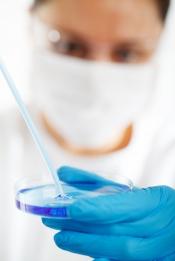Four steps to rebuild trust in biology
By Filipo Lentzos & Nicholas Evans,
The Guardian
| 05. 23. 2016
18-months of deliberation on how to regulate research enhancing the transmissibility and virulence of viruses will end when the National Science Advisory Board for Biosecurity (NSABB) meets on 24 May 2016. The modified pathogens created through so-called ‘gain-of-function’ experiments could, if accidentally released from labs or deliberately misused, cause man-made pandemics. A new regulatory framework for gain-of-function research could set a significant precedent by creating a new standard for oversight in the life sciences.
Scientists and innovators assure us that biological technologies will ultimately be beneficial, but trust in biologists is currently in a precarious state. Last week it was revealed that a handful of labs operated by the Centers for Disease Control and Prevention (CDC) faced serious and repeated sanctions, and even secretly had their permits suspended for serious safety violations while working with bioterror pathogens. The CDC’s lab operations have been under scrutiny since 2014, after a series of safety incidents at the agency’s headquarters in Atlanta involving Ebola, anthrax and a deadly strain of bird flu. At the National Institutes of Health (NIH), 30-year old live smallpox...
Related Articles
By Jonathan Matthews, GMWatch | 12.11.2025
In our first article in this series, we investigated the dark PR tactics that have accompanied Colossal Bioscience’s de-extinction disinformation campaign, in which transgenic cloned grey wolves have been showcased to the world as resurrected dire wolves – a...
By Katie Hunt, CNN | 07.30.2025
Scientists are exploring ways to mimic the origins of human life without two fundamental components: sperm and egg.
They are coaxing clusters of stem cells – programmable cells that can transform into many different specialized cell types – to form...
By John H. Evans, Craig Callender, Neal K. Devaraj, Farren J. Isaacs, and Gregory E. Kaebnick, Issues in Science and Technology | 07.04.2025
The controversy around a ban on “mirror life” should lead to a more nuanced public conversation about how to manage the benefits and risks of precursor biotechnologies.
About five years ago, the five of us formed a discussion group to...
By Pallab Gosh and Gwyndaf Hughes, BBC News | 06.26.2025
Work has begun on a controversial project to create the building blocks of human life from scratch, in what is believed to be a world first.
The research has been taboo until now because of concerns it could lead to...




